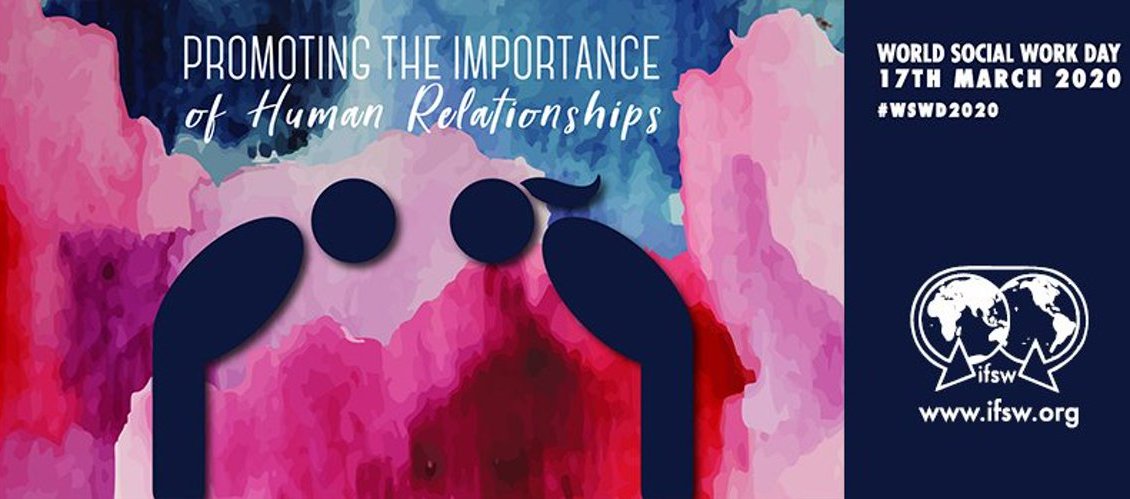
Today as we are celebrating World Social Work Day, I have been reflecting on what it means to me to be a social worker. I realised that I really never wanted to be anything else from as early on as I can remember. Now, after a long career in which I have had the privilege to be allowed into the lives of people, at times in the most difficult of circumstances, I realise that what sustained me all that time ago, still sustains and motivates me now; social work is about improving people’s lives and the communities in which we all live.
This year’s World Social Work Day theme is ‘Promoting the Importance of Human Relationships’. In essence, Social work is a human rights-based profession with the overriding aim of improving social justice and citizenship for those we are here to serve and work alongside. It uses relationships as the starting point and uses the skills of observation, communication, analysis and collaboration to discover what matters most to people, to support them to focus on their strengths, gifts and aspirations, and to help them live the lives they want for themselves, their families and communities.
In recent years I have been lucky enough to lead organisations and teams of people in social care, and I have found that my social work skills are directly transferable and influences the kind of leader I have become: Informed by strong values, collaborative, analytical, evidence based, outcomes focused, and ultimately with the same goal of improving lives. This extends to supporting a healthy and motivated workforce with decent working conditions and a focus on wellbeing, expressed for instance by Surrey Choices’ commitment to the Mindful Employer Charter and as a Disability Confident Employer.
At Surrey Choices we recently launched a transformation programme entitled ‘Changing Days’, focused on modernising our day services. We are committed to co-production and so we started by engaging the people we support, their families and our partners by asking them what is important to them, and what they would like the purpose of our support to be. What they told us was that relationships, connecting with others and with communities, was crucial to their health and wellbeing. Families told us that they wanted our support to connect them with other families so that they together could support their loved ones to make meaningful connections and to take part in society.
Social work fundamentally changes the way we view the world; it is endlessly varied and rewarding, and it goes to the heart of the thing that everyone cares about; the importance of human relationships.

Mette Le Jakobsen
Managing Director






